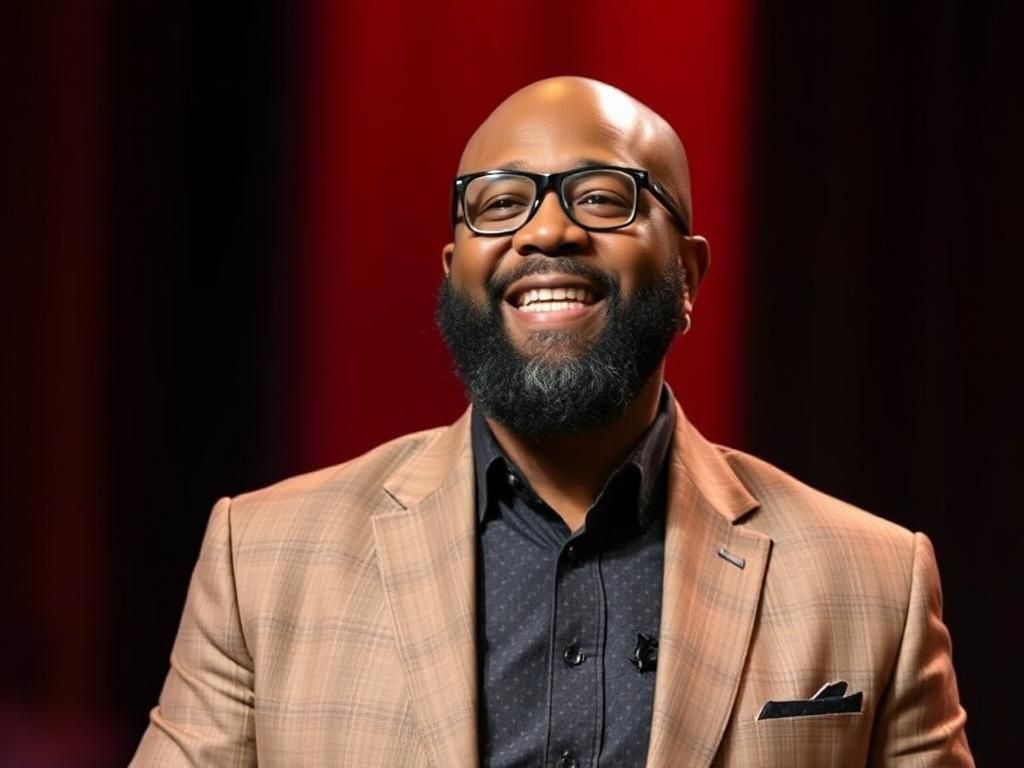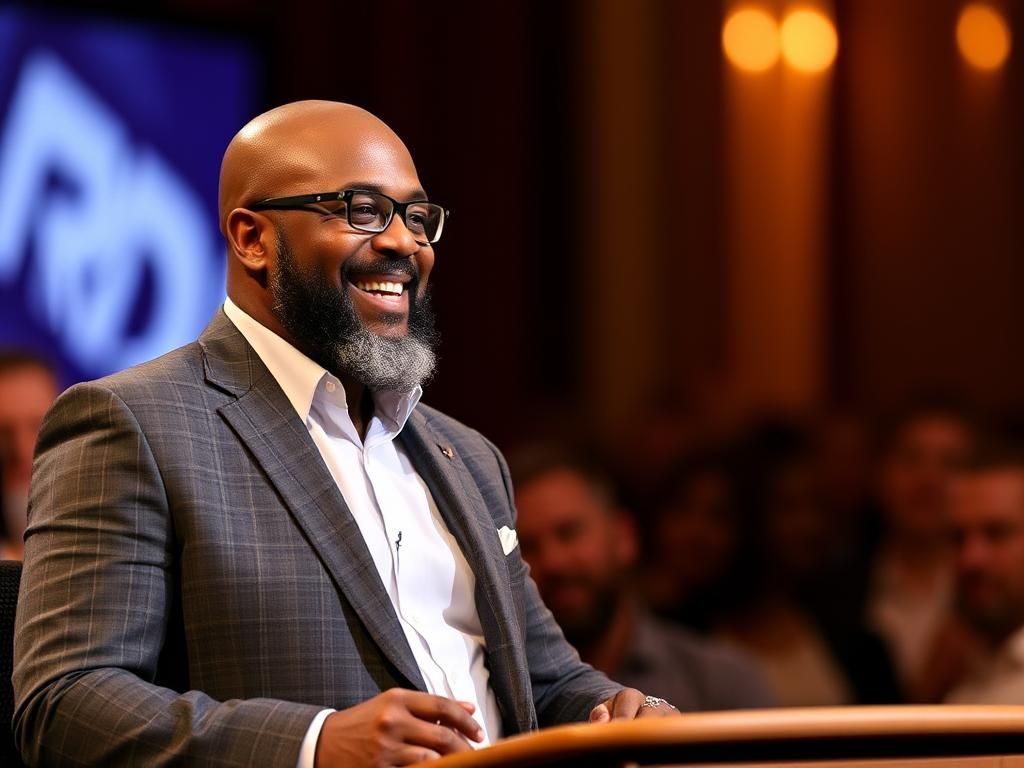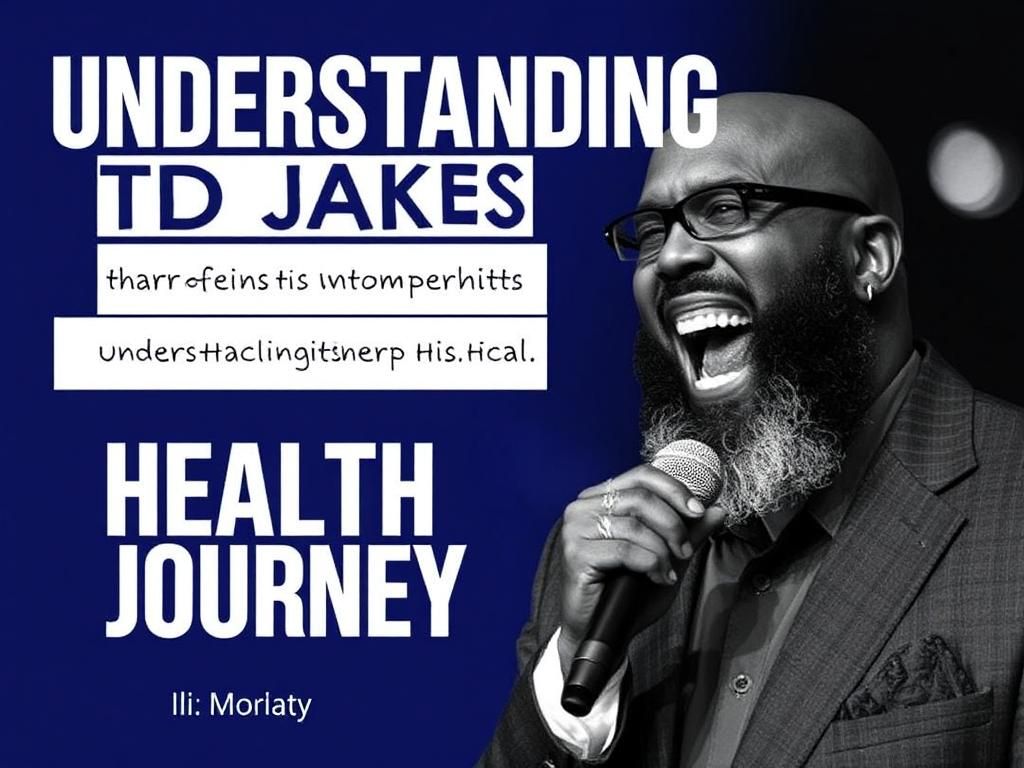Thomas Dexter Jakes, commonly known as TD Jakes, is a prominent pastor, author, and filmmaker, renowned for his powerful sermons and inspirational messages. His influence stretches across the globe, teaching millions about faith, resilience, and overcoming adversity. The discussion of health issues among public figures like Jakes is paramount, shedding light on the importance of public health awareness, especially regarding conditions like a stroke. The purpose of this article is to delve into Jakes’ health scare related to a stroke, emphasizing the implications it has not only on his ministry but also on public health awareness.
Who is TD Jakes?
Background
TD Jakes was born on June 9, 1957, in South Charleston, West Virginia. He grew up in a devout family where spirituality was interwoven with daily life. Jakes attended West Virginia University, where he studied journalism before abandoning it to pursue his calling in ministry. His early career involved working as a pastor in small churches, gradually building a reputation for his dynamic preaching style and insightful messages.
Accomplishments
Today, Jakes serves as the founder and lead pastor of The Potter’s House, a large non-denominational church in Dallas, Texas, which has approximately 30,000 members. His contributions extend beyond pastoral leadership; he is also an accomplished author of several books, including “Soar!,” which has garnered critical acclaim. Furthermore, Jakes has produced and starred in films such as “Jumping the Broom,” using his platform to discuss complicated faith-related themes in contemporary society. His influence on contemporary Christianity cannot be understated, as he has inspired countless individuals with his message of hope and healing.
Understanding Stroke
What is a Stroke?
A stroke occurs when there is an interruption of blood flow to the brain, leading to brain cell death. Understanding the types of strokes is essential for recognizing the symptoms and timely response:
- Ischemic Stroke: Occurs due to a blockage in the arteries that supply blood to the brain.
- Hemorrhagic Stroke: Results from a blood vessel bursting in or around the brain.
- Transient Ischemic Attack (TIA): Often called a “mini-stroke,” this temporary blockage causes stroke-like symptoms that resolve within a short time.
Common causes and risk factors for strokes include high blood pressure, diabetes, high cholesterol, smoking, obesity, and a sedentary lifestyle.
Symptoms of a Stroke
Recognizing the symptoms of a stroke is critical for timely medical intervention. The acronym FAST provides an easy way to remember the warning signs:
- Face Drooping: One side of the face may numb or droop down.
- Arm Weakness: One arm may feel weak or numb; they may not be able to raise both arms equally.
- Speech Difficulty: Speech may become slurred or jumbled.
- Time to Call Emergency Services: If any of these signs are present, it is crucial to seek immediate medical help.
The swift recognition of these symptoms can make an overwhelming difference in the recovery process.
TD Jakes’ Health Scare
Reports of Stroke
In 2023, reports began surfacing regarding a health scare involving TD Jakes, creating a wave of concern among his followers and the general public. The timeline of events illustrated the progression from minor health issues to what was later identified as a stroke. Initial public reactions ranged from shock to deep empathy, as Jakes is a noted figure whose messages of hope have inspired many. His family’s prompt response during this crisis demonstrated a strong support system, highlighting the necessity of community during health challenges.
Impact on his Ministry

The aftermath of Jakes’ stroke led to significant changes in his ministry’s schedule, including the postponement of previously planned events and sermons while he focused on recovery. Statements released by TD Jakes and his family echoed gratitude for public prayers and support, emphasizing the importance of faith during times of adversity. This health scare has profoundly illustrated the intersection of personal health and public ministry.
Recovery Process
Medical Treatment
The medical treatment required following a stroke may vary based on its type and severity. Common treatments include:
- Medications: Prescribed to dissolve blood clots (for ischemic strokes) or manage blood pressure (for hemorrhagic strokes).
- Rehabilitation: Important for regaining independence, rehabilitation typically includes physical therapy, occupational therapy, and speech therapy.
Early intervention and continual therapy enhance the recovery process and aid in reclaiming lost abilities.
Personal Reflections
In the wake of his recovery, TD Jakes has shared personal insights on faith and healing. His reflections underscore the importance of emotional and spiritual well-being alongside physical recovery. Support from family, friends, and the church community has played a significant role in his healing journey, reminding everyone of the strength found in unity and shared faith.
The Importance of Health Awareness
Educating the Public
Given the alarming statistics related to stroke prevalence, educating the public on this life-threatening condition is vital. TD Jakes, with his large platform, has the potential to significantly contribute to stroke awareness and advocacy. By sharing personal experiences and health education, he can inspire proactive health management among his followers.
Promoting a Healthy Lifestyle
Prevention plays a crucial role in addressing stroke risk. Here are some tips to promote a healthy lifestyle:
- Maintain a Healthy Diet: Incorporating fruits, vegetables, lean proteins, and whole grains while reducing salt and sugar intake can help manage health.
- Regular Exercise: Engaging in physical activity for at least 150 minutes per week greatly benefits heart health.
- Regular Check-Ups: Regular health screenings can help monitor and manage risk factors.
- Mental Health Management: Stress management techniques such as mindfulness, meditation, or therapy are essential in overall health.
Conclusion
Reflecting on TD Jakes’ significant contributions and current health status showcases the extraordinary journey of a public figure in overcoming health challenges. His experience serves as a stark reminder of the importance of health, resilience, and robust support systems in recovery. For readers, prioritizing one’s health is essential—not just physically, but also emotionally and spiritually. Ultimately, Jakes’ journey inspires many to embrace faith as a source of strength while navigating life’s unpredictable obstacles.
Additional Resources

Stroke Organizations and Support
For more information on strokes, please visit:
These resources can provide education and support for those affected by strokes.
Related Reads
Explore the following for additional insights on stroke awareness and TD Jakes’ work:
Call to Action
For further updates on health and spirituality, consider subscribing to health and wellness newsletters. Sharing personal experiences or thoughts on stroke awareness and recovery can foster a supportive community. Your engagement can help promote health consciousness and facilitate constructive discussions surrounding essential health topics.
FAQs about TD Jakes and Stroke
1. What is TD Jakes well-known for?
TD Jakes is known for his influential role as a pastor, author, and filmmaker, providing inspirational messages and teachings grounded in Christianity.
2. What are the main types of strokes?
The main types of strokes are ischemic, hemorrhagic, and transient ischemic attacks (TIAs).
3. How can I recognize the signs of a stroke?
Use the FAST method: look for face drooping, arm weakness, speech difficulties, and time to call emergency services.
4. What treatments are available for stroke?
Treatments vary by type but typically include medications and rehabilitation therapies.
5. How has TD Jakes’ health scare impacted his ministry?
His health scare led to significant adjustments in scheduled events and sermons, emphasizing the importance of health in ministry.
6. What role can public figures play in health awareness?
Public figures like TD Jakes can educate and inspire action towards better health practices and stroke awareness.
7. What lifestyle changes can help in stroke prevention?
Maintaining a healthy diet, engaging in regular exercise, and managing stress effectively are vital lifestyle changes.
8. How can I support someone recovering from a stroke?
Offer emotional support, assist with rehabilitation exercises, and encourage them to attend therapy sessions.
9. What organizations offer support for stroke awareness?
The American Stroke Association provides extensive resources for stroke education and support for those affected.
10. How important is faith in recovery from a health crisis?
Faith can provide emotional support and resilience, fostering a positive mindset that aids in the recovery process.
| Key Points | Details |
|---|---|
| Definition of Stroke | Interruption of blood flow to the brain |
| Types of Stroke | Ischemic, Hemorrhagic, Transient Ischemic Attack (TIA) |
| Early Symptoms | FAST: Face drooping, Arm weakness, Speech difficulty |
| Primary Treatments | Medications, Rehabilitation |
| Healthy Lifestyle Tips | Healthy diet, regular exercise, stress management |
